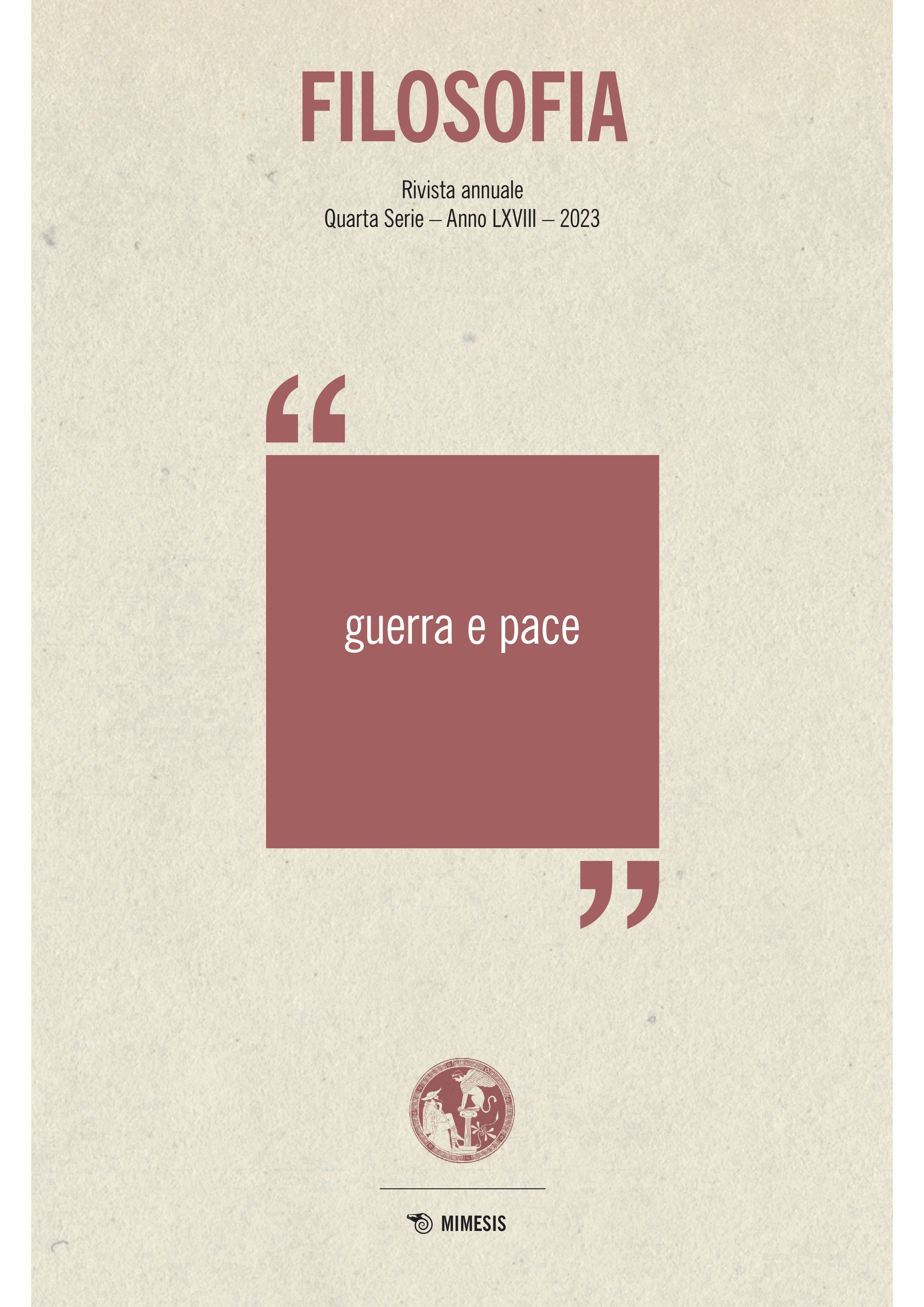Il profilo personalistico dell’idealismo trascendente di Piero Martinetti
DOI:
https://doi.org/10.13135/2704-8195/9223Parole chiave:
Pietro Martinetti, personal identity, neoplatonismAbstract
This paper seeks to identify the space and function of the concept of “person” within Piero Martinetti’s metaphysics, with specific reference to his last and unfinished work, called by editor Emilio Agazzi “Metaphysics” or also “General Metaphysics,” constituting an extension, in the ontological sphere, of the Piedmontese philosopher’s best-known work, the “Introduction to Metaphysics.” The analysis conducted reveals the centrality of the person in Martinetti’s metaphysics and its neo-Platonic inspiration. I point out how Martinetti implements a henological foundation of the person, as opposed to the empiricist perspective, which understands the person only as a relational node. Also noted are the reasons for the proximity between Martinetti’s thought and the ontological foundation of the person operated by the metaphysics of Being, concerning Leibniz and Lotze, and also the aspects distant from it since, for Martinetti, the person extends its scope to the possible individual life after death, but does not constitute a final landing place on the path beginning with the birth of man.
Downloads
Riferimenti bibliografici
Agazzi, Emilio. 2016. La filosofia di Piero Martinetti. Vigorelli Amedeo, Mancini Sandro, Zanatoni Marzio, a cura di. Milano: Unicopli.
Martinetti, Piero. 1976. Introduzione alla metafisica, II: Metafisica generale, in Scritti di metafisica e filosofia della religione, vol. I, Agazzi Emilio, a cura di. Milano: Edizioni di Comunità.
Martinetti, Piero. 1976b. Introduzione alla metafisica, II: Metafisica generale, in Scritti di metafisica e filosofia della religione, vol. II, Agazzi Emilio, a cura di. Milano: Edizioni di Comunità.
##submission.downloads##
Pubblicato
Come citare
Fascicolo
Sezione
Licenza
Copyright (c) 2023 Sandro Mancini

TQuesto lavoro è fornito con la licenza Creative Commons Attribuzione 4.0 Internazionale.
Filosofia applica una licenza Creative Commons Attribution 4.0 International License a tutto il materiale pubblicato.




